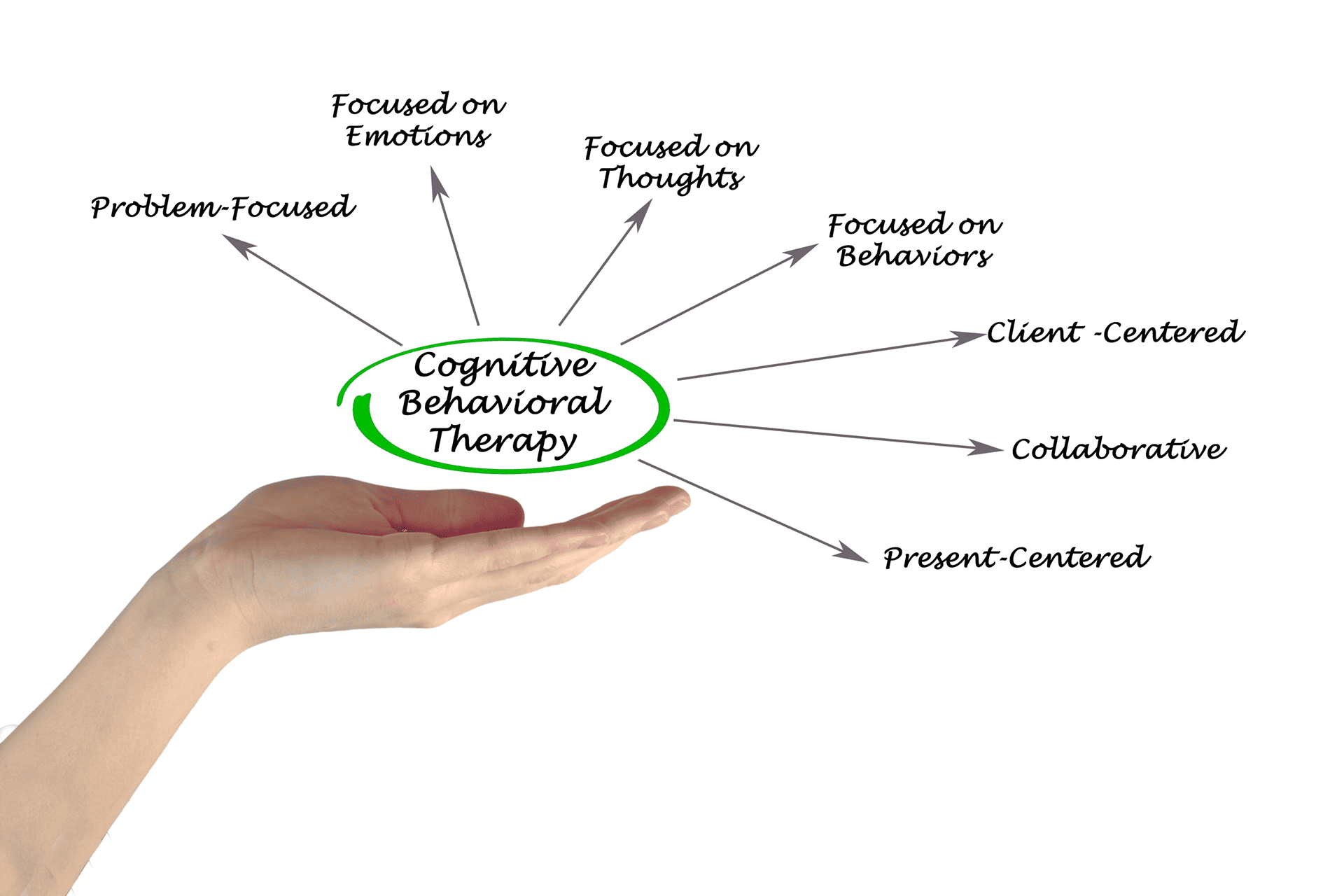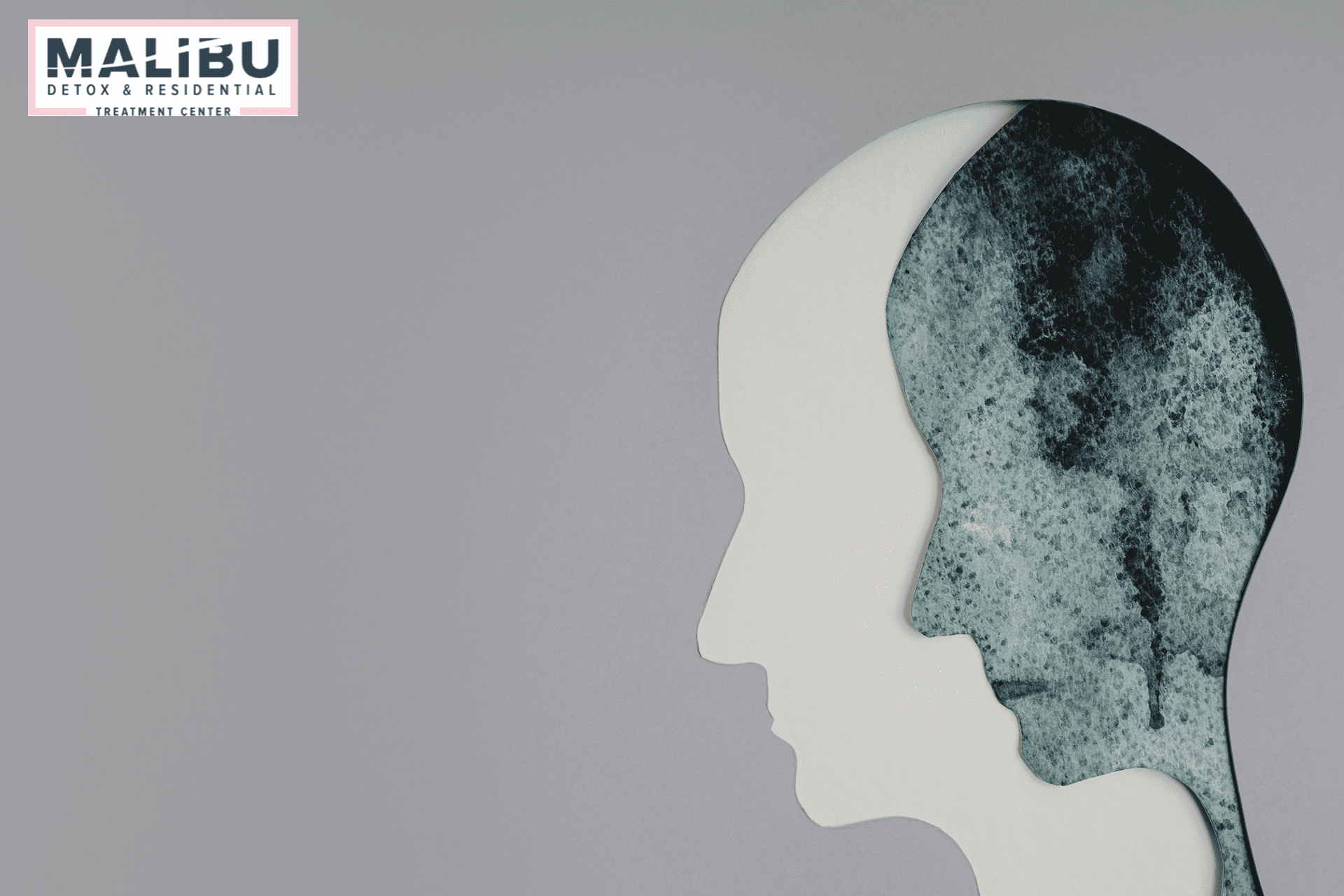Cognitive behavioral therapy (CBT) is a cornerstone of substance abuse treatment, including addressing alcohol addiction and drug abuse. It’s a structured form of talk therapy recommended by the Substance Abuse and Mental Health Services Administration (SAMHSA) and recognized by the National Institute on Drug Abuse (NIDA) as an effective treatment strategy for individuals with substance use disorders.
What is Cognitive Behavioral Therapy

Cognitive Behavioral Therapy (CBT) is an evidence-based therapeutic approach used in the treatment of alcoholism and various other substance use disorders. It’s a structured, goal-oriented therapy that focuses on identifying and changing negative thought patterns and behaviors associated with addiction.
In the context of treating alcoholism, CBT aims to help individuals understand the relationship between their thoughts, feelings, and actions concerning alcohol use.
Cognitive Behavioral Therapy is evidence-based and has been subject to randomized controlled trials and effectiveness research, confirming its success. It complements other strategies, such as motivational interventions and operant learning strategies, offering a holistic approach to treating substance misuse.
Three Main Goals of CBT
Identify and Understand Cognitive Distortions: The first pivotal goal in CBT is to assist individuals in recognizing and comprehending their cognitive distortions. These distortions often underlie substance abuse and other mental health conditions. By pinpointing these patterns of thinking, individuals can begin to appreciate the connection between their thoughts and their emotional states. This awareness is a vital first step in the recovery process.
Challenge and Modify Negative Thinking Patterns: The second core objective of CBT is to challenge and modify negative thinking patterns. Cognitive restructuring, a key component of CBT, helps individuals question the validity of their irrational beliefs. With the guidance of their therapists, they replace these distorted thoughts with more realistic, balanced, and healthier alternatives. This process facilitates a fundamental shift in how individuals perceive and respond to challenges, including those related to substance use.
Develop Coping Strategies and Behavioral Change: The third crucial goal of CBT is to empower individuals with practical coping skills and facilitate behavioral change. These coping skills are essential for managing cravings, dealing with triggers, and handling stress effectively. CBT provides a toolkit of strategies, including relaxation techniques, assertiveness training, problem-solving, and exposure therapy, tailored to each person’s unique needs.
Cognitive Behavioral Therapy Techniques

Assessment and Goal Setting: CBT starts with a comprehensive evaluation of the individual’s substance misuse, which includes alcohol or drug abuse. Working in collaboration with cognitive behavioral therapists, clients set specific treatment goals that align with their unique needs and circumstances.
Understanding Behavioral Patterns: CBT delves into identifying and understanding the behavioral patterns that drive substance use. This includes recognizing high-risk situations, such as stress or social triggers, and working to develop coping strategies for these scenarios.
Challenging Cognitive Distortions: Cognitive behavioral therapy techniques target negative thinking patterns and cognitive distortions associated with substance abuse. Clients learn to recognize irrational beliefs and replace them with more rational, healthier ones.
Skill Development: Clients receive cognitive behavioral interventions that equip them with practical coping skills. These skills may encompass relaxation techniques, assertiveness training, and problem-solving strategies, all of which are vital for managing cravings and avoiding relapse.
Homework Assignments: CBT often includes homework assignments, encouraging individuals to practice and reinforce the skills learned in therapy sessions. This active involvement contributes to the effectiveness of the treatment. Completing these assignments can provide great assistance when facing triggers in real-life situations.
Relapse Prevention: A key aspect of CBT is relapse prevention. Clients learn to identify early warning signs and employ different strategies to prevent or manage relapse effectively. This proactive approach is instrumental in maintaining long-term sobriety.
Continued Support: While CBT is typically structured in a time-limited format, clients can integrate its principles into their ongoing recovery plans. Many individuals find it beneficial to continue practicing CBT techniques as part of their sobriety maintenance.
How CBT Can Assist in Overcoming Substance Abuse

Cognitive behavioral therapy has a robust foundation in research, with randomized controlled trials and effectiveness research confirming its efficacy. It is administered by trained cognitive behavioral therapists and is widely recognized as one of the most effective treatment strategies for substance use disorders, including alcohol and drug addiction.
CBT’s success extends to treating other mental health conditions like anxiety disorders, depression, obsessive-compulsive disorder, and post-traumatic stress disorder. It is provided by mental health professionals, including mental health counselors and clinical psychologists.
Whether in-person or through online therapy, CBT empowers individuals to modify their problematic behavior and develop the necessary coping skills to navigate recovery. By addressing both cognitive distortions and behavioral patterns, CBT offers distinct interventions that make it a valuable tool in addiction treatment. It complements motivational interventions and operant learning strategies to provide a comprehensive approach to treating substance misuse.
CBT Opportunites to Treat Alcoholism

Incorporating a range of cognitive behavioral therapy techniques, CBT is delivered by trained cognitive behavioral therapists and mental health professionals to address various aspects of addiction treatment.
Identification of Triggers: CBT treatment begins by identifying the specific triggers associated with substance misuse, such as stress or anxiety disorders. Understanding these triggers is essential for developing tailored treatment strategies.
Thought Pattern Modification: Cognitive behavioral therapy challenges and reframes negative thinking patterns related to addiction, including cognitive distortions like “I can’t cope without substances.” By addressing these distortions, individuals can reshape their attitudes towards drugs or alcohol.
Behavioral Analysis: CBT assists individuals in analyzing behavioral patterns or mental illnesses linked to substance abuse. It delves into when, where, and why they engage in drug or alcohol use. This insight informs behavior change efforts.
Developing Coping Skills: Coping skills are a crucial component of CBT for alcoholism. Clients receive training in practical skills, such as stress management, relaxation techniques, and assertiveness, which help them manage cravings and cope with high-risk situations.
Self-Monitoring: Keeping a journal to track substance use patterns, emotional states, and cognitive processes is integral to CBT. Self-monitoring provides data to recognize trends and areas requiring intervention.
Relapse Prevention: CBT places a strong emphasis on preventing relapse. Clients learn to identify early warning signs and implement strategies to avoid or manage relapse, thus promoting sustained recovery.
Cognitive Restructuring: Cognitive distortions, such as irrational beliefs about substance use, are targeted for modification. CBT aids in recognizing and challenging these distortions to instill a more realistic and healthy perspective.
Skill Building: Clients acquire a repertoire of skills, including problem-solving and assertiveness, to navigate life without relying on substances to cope with challenges.
Social Support: Building a robust support network is encouraged. This can include family therapy and education to help loved ones understand how to support recovery.
Emotional Regulation: CBT equips clients with strategies to manage emotions effectively without resorting to substance use. This is particularly helpful for those with co-occurring mental health conditions.
Goal Setting: Setting achievable goals for reducing or quitting substance use is fundamental. These goals provide direction and motivation throughout treatment.
Education: Providing information about the physical and psychological effects of substance misuse enhances clients’ understanding of the risks and consequences, motivating positive change.
Understanding Differences in the Cognitive Behavioral Approach

Cognitive Behavioral Therapy (CBT) encompasses various approaches and techniques that are tailored to address specific mental health issues and conditions. The different applications of CBT methods can be particularly helpful in those struggling with addiction and looking to address the connection of mental illness, like wanting to treat depression.
Traditional Cognitive Behavioral Therapy (CBT)
This is the foundational form of CBT that focuses on identifying and challenging negative thought patterns and irrational beliefs. It aims to change these patterns to improve emotional well-being and behavior. Traditional CBT is used for a wide range of conditions, including anxiety disorders, depression, and substance abuse.
Dialectical Behavior Therapy (DBT)
This is the foundational form of CBT that focuses on identifying and challenging negative thought patterns and irrational beliefs. It aims to change these patterns to improve emotional well-being and behavior. Traditional CBT is used for a wide range of conditions, including anxiety disorders, depression, and substance abuse.
Dialectical Behavior Therapy (DBT)
Developed primarily to treat borderline personality disorder, DBT combines elements of CBT with mindfulness and acceptance strategies. It helps individuals regulate emotions, tolerate distress, and improve interpersonal relationships.
Acceptance and Commitment Therapy (ACT)
ACT combines CBT with mindfulness and values-based strategies. It encourages individuals to accept their thoughts and feelings rather than trying to control or eliminate them. The focus is on taking committed action towards one’s values and goals.
Mindfulness-Based Cognitive Therapy (MBCT)
MBCT combines CBT with mindfulness techniques. It’s designed to prevent relapse in individuals with recurrent depression by teaching them to be more aware of their thoughts and feelings and to develop healthier responses to them.
Schema Therapy
Schema therapy goes beyond traditional CBT by addressing deep-seated, early-life schemas or patterns of thinking and behavior that contribute to various mental health issues. It’s particularly useful for treating personality disorders and chronic emotional problems.
Prolonged Exposure (PE) Therapy
PE is a CBT approach used primarily for PTSD. It involves confronting and processing traumatic memories through controlled and systematic exposure, helping individuals reduce the emotional distress associated with trauma.
Cognitive Behavioral Analysis System of Psychotherapy (CBASP)
CBASP is specifically designed for chronic depression. It focuses on interpersonal relationships and helps individuals improve their social interactions and problem-solving skills.
Inpatient Treatment for Alcohol Addiction

Inpatient treatment for alcohol addiction represents a critical and intensive approach to helping individuals overcome the challenges of alcoholism. Rooted in evidence-based practices, this form of addiction treatment is designed to provide a structured, supportive, and highly focused environment where individuals can address their alcohol use disorders.
By offering round-the-clock care, therapeutic interventions, and a comprehensive range of services, our inpatient treatment facilities create an optimal setting for individuals to embark on their journey to recovery from alcohol addiction.
Combining Treatment for Alcohol Use Disorder with Mental Health Services Administration
The first step in your recovery journey and overcoming alcohol abuse begins with alcohol detox. By entering our treatment center, you can embark on the journey to a sober life and simultaneously benefit from cognitive therapy options.
At Malibu Detox and Residential Treatment Center, we believe in providing comprehensive care that goes beyond addressing just the symptoms of alcohol use disorder. Our approach integrates treatment for alcohol addiction with the principles and guidelines set forth by the Mental Health Services Administration (SAMHSA). This integration allows us to offer a holistic and patient-centered experience that prioritizes both physical and mental well-being.
Our approach involves a personalized treatment plan that considers each individual’s unique needs, including any mental health conditions they may be experiencing. We offer evidence-based therapies and interventions that are not only effective in addressing alcohol addiction but also provide support and healing for mental health concerns. This combination of treatments is crucial in promoting long-term recovery and overall well-being.
Aftercare for Maintaining Sobriety

At Malibu Detox and Residential Treatment Center, we understand that the journey to recovery from alcohol addiction extends well beyond the initial treatment phase. Maintaining sobriety is a lifelong commitment, and we are dedicated to providing ongoing support through our comprehensive aftercare program.
Our commitment to your sobriety doesn’t end when you complete your residential treatment with us. Instead, it marks the beginning of a new chapter in your recovery journey. Our aftercare program is designed to ensure that you have the resources, guidance, and community you need to thrive in your alcohol-free life.
We offer a range of aftercare services, including continued therapy sessions, support groups, and access to our network of experienced counselors and therapists. These services are tailored to your specific needs and can be adapted as your journey progresses.
From Rehab to a Sober Life
At Malibu Detox and Residential Treatment Center, we view aftercare as an integral part of your recovery plan. We recognize that the transition from a structured treatment environment back to everyday life can be challenging, and our aftercare program is here to bridge that gap. It provides a safety net, ongoing education, and a supportive community to help you navigate the ups and downs of maintaining sobriety.
Our aftercare program is rooted in the belief that recovery is an ongoing process that requires ongoing support. We are here to be your partners in this journey, helping you build a foundation for a healthier, more fulfilling life free from the burden of alcohol addiction. Your success is our success, and we are dedicated to supporting you every step of the way.
Discover How Cognitive Behavioral Therapy Can Help You Overcome Addiction

At Malibu Treatment Center, we offer comprehensive treatment for alcohol use disorder in a therapeutic environment that fosters healing, resilience, and a path toward lasting sobriety. Our commitment to integrated care reflects our dedication to addressing the holistic needs of our clients, ensuring they receive the comprehensive support necessary to achieve a healthier and brighter future. Take the first step toward recovery today and call (424) 234 2027.





